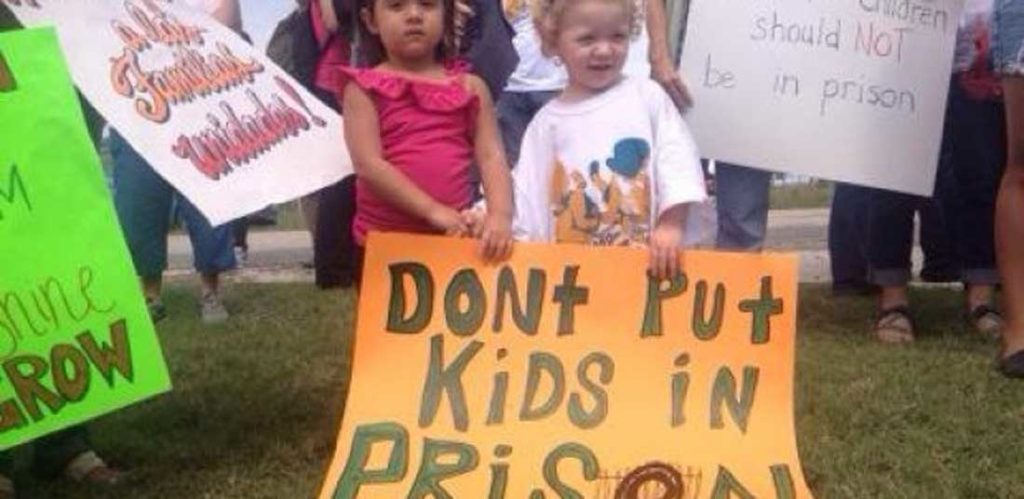While former President Barack Obama deported an unprecedented number of undocumented immigrants during his eight years in office, Donald Trump appears bent not just on deportation but on treating that population with malice and contempt.
“The fear the Trump administration has put into the undocumented community is absolutely terrifying,” said Renny Rosas, a longtime activist in Southeast Fort Worth. “I’ve never seen it like this. Where Obama deported huge numbers of people, he did it without terrifying everyone. Trump is looking to have every undocumented person in the country afraid.”
Rosas worked as a substitute teacher in the Fort Worth school district during the most recent semester and said a lot of parents stopped picking up their children from school as Trump and Attorney General Jeff Sessions ramped up their rhetoric and widened the scope of their crackdown.

Some parents were so afraid that agents from Immigration and Customs Enforcement (ICE) would be “waiting near the school to pick them up,” Rosas said. “Then they’d get deported, and what would happen to their kids? So they would ask a legal person to pick up their children. Some women and dads were picking up kids from several families, as surrogates.”
Rosas said that on National Donut Day last week he had a shocking conversation with an acquaintance. “So I went to a donut shop to get a free donut, and one of the guys asked if I was still a notary,” Rosas told me. “I asked him why and he said, ‘Well, I’m illegal, and I need to give power of attorney to some legal family members to take care of my kids and stuff when I get caught and deported.’ ”
“Illegal” isn’t actually the right word to describe undocumented aliens – it is not a criminal offense to be in the United States without documentation. “It’s a civil violation, not a criminal offense,” explained Bob Libal, the executive director of Grassroots Leadership, a Texas nonprofit fighting to end the use of private prisons in the United States. Civil violations generally result in tickets or fines. Undocumented aliens can be deported as well, but they are not criminals. Thus there is no criminal record connected with a civil violation.
There are two criminal offenses on the books related to undocumented aliens: One is unauthorized entry, a misdemeanor, and the other is unauthorized reentry, a felony. “The government began prosecuting people for these crimes about 10 years ago,” Libal said. “Now they represent half of all the federal crimes across the entire United States.”
Libal is backed up by Syracuse University’s TRAC reporting, a federal database that includes prosecutions. The surge that began under Obama has continued with Trump.
Among the most odious ways the unauthorized-entry criminal statute is used is against asylum seekers here. People seeking asylum generally walk up to a border guard and ask for asylum. By the laws of both the United States and the international community, those people must be allowed to enter the country before undergoing a “credible fear” interview with an asylum officer to determine whether or not they have a legitimate fear of persecution if returned to their home country. If the person seeking asylum passes the initial interview, he or she has traditionally been sent to live with a family member or someone identified by a religious organization for him or her while they await a hearing before a judge. The hearing is to determine whether or not the asylum seeker is allowed to stay in the United States permanently.
“What is happening now,” Libal said, “is that asylum seekers are being pushed back, pushed away when they try to seek asylum, leaving them the only option of trying to cross the border illegally. When they do, they are arrested under the unauthorized entry statute, which allows them to be separated from their children. This is a choice that Jeff Sessions is making. There is little or no precedent for using criminal prosecution as a blunt instrument against children and their moms or dads. Other administrations have done a lot of bad things, but up until now, we have not ripped kids from their parents in order to prosecute those parents.”
While unauthorized entry is only a misdemeanor — despite being used as a way to instill fear into tens of thousands of people — unauthorized reentry is a felony, punishable by up to two years in federal prison.
“People caught reentering after they’ve been deported do an average of 14 months in prison before they are sent to a civil detention center for deportation,” Libal said. “That applies only to those with no criminal history. If you are caught reentering or being here after being deported and have criminal charges, well, those enhancements can bring that up to 20 years.”
For some, even being here in a sanctuary situation can feel like prison. Hilda — no last name — came from Mexico seeking sanctuary in late 2015. She was on the run from the father of a man who had raped and impregnated her. The father, a high level drug trafficker, wants his grandson and has put out the order that Hilda should be killed and the grandson brought to him. When Hilda was not granted asylum — the judge evidently did not think the threat was real or serious enough to grant her request — Hilda sought asylum in St. Andrew’s Presbyterian Church in Austin.
“Hilda and her son came to live here in February 2016,” said Babs Miller, a minister at the church. “She did not get her final deportation order until January 2018, and so, until that time, she could leave the church. But she can’t leave it anymore for fear that ICE agents will be waiting for her, and she knows she’ll be killed if she’s deported, so her sanctuary has become her prison. It’s nicer than most private prisons: We don’t feed her food with bugs in it, we don’t do a bed check in the middle of the night, and we do not take her child away. But it is still a sort of prison for her.”
The list of awful policies the Trump administration has implemented against undocumented aliens is unprecedented — from having ICE go after respected members of the community and break up families to Secretary of Education Betsy DeVos’ instructions that schools can call ICE on undocumented students. The list includes having lost track of hundreds of undocumented children placed by the Office of Refugee Resettlement into the care of sponsors, to not cracking down on ICE and Border Patrol agents who destroy water and food supplies left in the deserts of Texas and Arizona for aliens making the illegal crossing, contributing to the hundreds who die in those deserts annually. And it is overwhelming.
“What people sometimes don’t see is how these policies affect the people you and I deal with daily,” said Richard Miller (no relation), a builder from Dallas who specializes in high-end custom homes. “In my line of work, we are completely dependent on migrant labor, much of it illegal. I could be as callous as I want toward them — and I’m not, but even if I was, I’d still be dependent on them, so the Trump policies are completely counterintuitive to building residential homes because there simply are not enough white people who know how to do the work.”
One of the changes that Trump’s early-term rhetoric caused, Miller said, was that a lot of his workers did not want to work outside North Texas. “They were very wary about traveling to rural building sites where they might stand out,” Miller said.
It’s recently gotten worse, he said. “My tradesmen have begun locking the fencing around the jobsites when they come to work, so that ICE or other law enforcement can’t just come in and ask their status. They say they’re more comfortable with it locked, and that has never happened on any of my jobsites before.”
Trump’s new policies are novel. “We’ve got teachers who themselves are here under the [Deferred Action for Childhood Arrivals] program,” Libal said. “And they’re afraid the program will end and they’ll be deported, and they are teaching students who are afraid their parents will be deported. There is just so much fear being spread and so many ways that fear affects our communities. Parents afraid to go shopping, kids afraid the school will turn them in to ICE. It’s just pervasive.”
The new reality for undocumented immigrants is harrowing.
“The fear is not unfounded,” Babs Miller said. “It’s genuine.”












